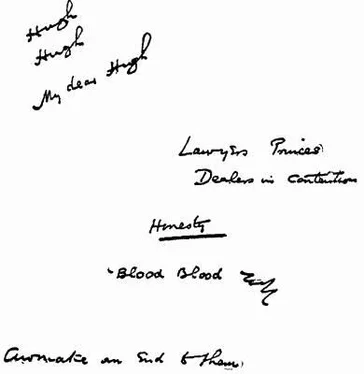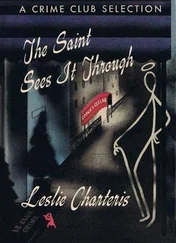Herbert Wells - Mr. Britling Sees It Through
Здесь есть возможность читать онлайн «Herbert Wells - Mr. Britling Sees It Through» весь текст электронной книги совершенно бесплатно (целиком полную версию без сокращений). В некоторых случаях можно слушать аудио, скачать через торрент в формате fb2 и присутствует краткое содержание. Жанр: Классическая проза, на английском языке. Описание произведения, (предисловие) а так же отзывы посетителей доступны на портале библиотеки ЛибКат.
- Название:Mr. Britling Sees It Through
- Автор:
- Жанр:
- Год:неизвестен
- ISBN:нет данных
- Рейтинг книги:4 / 5. Голосов: 1
-
Избранное:Добавить в избранное
- Отзывы:
-
Ваша оценка:
- 80
- 1
- 2
- 3
- 4
- 5
Mr. Britling Sees It Through: краткое содержание, описание и аннотация
Предлагаем к чтению аннотацию, описание, краткое содержание или предисловие (зависит от того, что написал сам автор книги «Mr. Britling Sees It Through»). Если вы не нашли необходимую информацию о книге — напишите в комментариях, мы постараемся отыскать её.
Mr. Britling Sees It Through — читать онлайн бесплатно полную книгу (весь текст) целиком
Ниже представлен текст книги, разбитый по страницам. Система сохранения места последней прочитанной страницы, позволяет с удобством читать онлайн бесплатно книгу «Mr. Britling Sees It Through», без необходимости каждый раз заново искать на чём Вы остановились. Поставьте закладку, и сможете в любой момент перейти на страницу, на которой закончили чтение.
Интервал:
Закладка:
The young staff officer nodded. He thought that was "about it."
"You've got no sons," said Mr. Britling.
"I'm not even married," said Raeburn, as though he thanked God.
The little well-informed lady remarked abruptly that she had two sons; one was just home wounded from Suvla Bay. What her son told her made her feel very grave. She said that the public was still quite in the dark about the battle of Anafarta. It had been a hideous muddle, and we had been badly beaten. The staff work had been awful. Nothing joined up, nothing was on the spot and in time. The water supply, for example, had gone wrong; the men had been mad with thirst. One regiment which she named had not been supported by another; when at last the first came back the two battalions fought in the trenches regardless of the enemy. There had been no leading, no correlation, no plan. Some of the guns, she declared, had been left behind in Egypt. Some of the train was untraceable to this day. It was mislaid somewhere in the Levant. At the beginning Sir Ian Hamilton had not even been present. He had failed to get there in time. It had been the reckless throwing away of an army. And so hopeful an army! Her son declared it meant the complete failure of the Dardanelles project....
"And when one hears how near we came to victory!" she cried, and left it at that.
"Three times this year," said Raeburn, "we have missed victories because of the badness of our staff work. It's no good picking out scapegoats. It's a question of national habit. It's because the sort of man we turn out from our public schools has never learnt how to catch trains, get to an office on the minute, pack a knapsack properly, or do anything smartly and quickly—anything whatever that he can possibly get done for him. You can't expect men who are habitually easy-going to keep bucked up to a high pitch of efficiency for any length of time. All their training is against it. All their tradition. They hate being prigs. An Englishman will be any sort of stupid failure rather than appear a prig. That's why we've lost three good fights that we ought to have won—and thousands and thousands of men—and material and time, precious beyond reckoning. We've lost a year. We've dashed the spirit of our people."
"My boy in Flanders," said Mr. Britling, "says about the same thing. He says our officers have never learnt to count beyond ten, and that they are scared at the sight of a map...."
"And the war goes on," said the little woman.
"How long, oh Lord! how long?" cried Mr. Britling.
"I'd give them another year," said the staff officer. "Just going as we are going. Then something must give way. There will be no money anywhere. There'll be no more men.... I suppose they'll feel that shortage first anyhow. Russia alone has over twenty millions."
"That's about the size of it," said Raeburn....
"Do you think, sir, there'll be civil war?" asked the young staff officer abruptly after a pause.
There was a little interval before any one answered this surprising question.
"After the peace, I mean," said the young officer.
"There'll be just the devil to pay," said Raeburn.
"One thing after another in the country is being pulled up by its roots," reflected Mr. Britling.
"We've never produced a plan for the war, and it isn't likely we shall have one for the peace," said Raeburn, and added: "and Lady Frensham's little lot will be doing their level best to sit on the safety-valve.... They'll rake up Ireland and Ulster from the very start. But I doubt if Ulster will save 'em."
"We shall squabble. What else do we ever do?"
No one seemed able to see more than that. A silence fell on the little party.
"Well, thank heaven for these dahlias," said Raeburn, affecting the philosopher.
The young staff officer regarded the dahlias without enthusiasm....
§ 16
Mr. Britling sat one September afternoon with Captain Lawrence Carmine in the sunshine of the barn court, and smoked with him and sometimes talked and sometimes sat still.
"When it began I did not believe that this war could be like other wars," he said. "I did not dream it. I thought that we had grown wiser at last. It seemed to me like the dawn of a great clearing up. I thought the common sense of mankind would break out like a flame, an indignant flame, and consume all this obsolete foolery of empires and banners and militarism directly it made its attack upon human happiness. A score of things that I see now were preposterous, I thought must happen—naturally. I thought America would declare herself against the Belgian outrage; that she would not tolerate the smashing of the great sister republic—if only for the memory of Lafayette. Well—I gather America is chiefly concerned about our making cotton contraband. I thought the Balkan States were capable of a reasonable give and take; of a common care for their common freedom. I see now three German royalties trading in peasants, and no men in their lands to gainsay them. I saw this war, as so many Frenchmen have seen it, as something that might legitimately command a splendid enthusiasm of indignation.... It was all a dream, the dream of a prosperous comfortable man who had never come to the cutting edge of life. Everywhere cunning, everywhere small feuds and hatreds, distrusts, dishonesties, timidities, feebleness of purpose, dwarfish imaginations, swarm over the great and simple issues.... It is a war now like any other of the mobbing, many-aimed cataclysms that have shattered empires and devastated the world; it is a war without point, a war that has lost its soul, it has become mere incoherent fighting and destruction, a demonstration in vast and tragic forms of the stupidity and ineffectiveness of our species...."
He stopped, and there was a little interval of silence.
Captain Carmine tossed the fag end of his cigar very neatly into a tub of hydrangeas. "Three thousand years ago in China," he said, "there were men as sad as we are, for the same cause."
"Three thousand years ahead perhaps," said Mr. Britling, "there will still be men with the same sadness.... And yet—and yet.... No. Just now I have no elasticity. It is not in my nature to despair, but things are pressing me down. I don't recover as I used to recover. I tell myself still that though the way is long and hard the spirit of hope, the spirit of creation, the generosities and gallantries in the heart of man, must end in victory. But I say that over as one repeats a worn-out prayer. The light is out of the sky for me. Sometimes I doubt if it will ever come back. Let younger men take heart and go on with the world. If I could die for the right thing now—instead of just having to live on in this world of ineffective struggle—I would be glad to die now, Carmine...."
§ 17
In these days also Mr. Direck was very unhappy.
For Cissie, at any rate, had not lost touch with the essential issues of the war. She was as clear as ever that German militarism and the German attack on Belgium and France was the primary subject of the war. And she dismissed all secondary issues. She continued to demand why America did not fight. "We fight for Belgium. Won't you fight for the Dutch and Norwegian ships? Won't you even fight for your own ships that the Germans are sinking?"
Mr. Direck attempted explanations that were ill received.
"You were ready enough to fight the Spaniards when they blew up the Maine . But the Germans can sink the Lusitania ! That's—as you say—a different proposition."
His mind was shot by an extraordinary suspicion that she thought the Lusitania an American vessel. But Mr. Direck was learning his Cissie, and he did not dare to challenge her on this score.
"You haven't got hold of the American proposition," he said. "We're thinking beyond wars."
Читать дальшеИнтервал:
Закладка:
Похожие книги на «Mr. Britling Sees It Through»
Представляем Вашему вниманию похожие книги на «Mr. Britling Sees It Through» списком для выбора. Мы отобрали схожую по названию и смыслу литературу в надежде предоставить читателям больше вариантов отыскать новые, интересные, ещё непрочитанные произведения.
Обсуждение, отзывы о книге «Mr. Britling Sees It Through» и просто собственные мнения читателей. Оставьте ваши комментарии, напишите, что Вы думаете о произведении, его смысле или главных героях. Укажите что конкретно понравилось, а что нет, и почему Вы так считаете.






